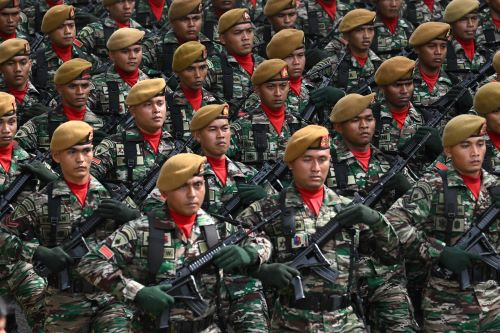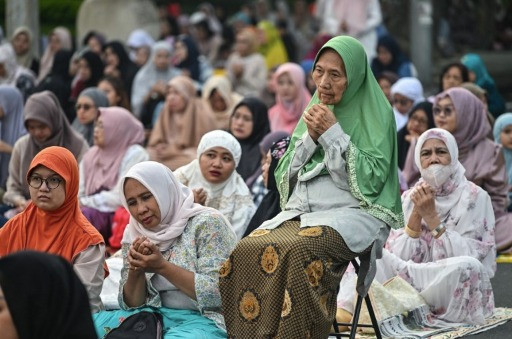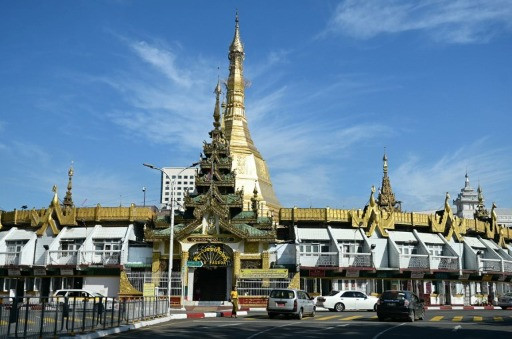Slow days for netizens
Change Size
 Hear no evil: A woman passes a mural showing antihoax messages in Rawa Buntu, South Tangerang, Banten, on April 1. (The Jakarta Post/Dhoni Setiawan)
Hear no evil: A woman passes a mural showing antihoax messages in Rawa Buntu, South Tangerang, Banten, on April 1. (The Jakarta Post/Dhoni Setiawan)
I
nternet users have had difficulty seamlessly surfing the web since Wednesday, when they found themselves dealing with slower speeds and access issues on various social media platforms. “To prevent false news from spreading to the wider public, we are temporarily limiting access to certain features on social media,” Coordinating Political, Legal and Security Affairs Minister Wiranto said.
In the afternoon, people were unable to upload and send images and videos. Communications and Information Minister Rudiantara said, “We know that the best way [to spread false news] is to post videos, memes and photos on Facebook, Instagram and Twitter. These posts are screen-captured and go viral on messaging apps such as WhatsApp. So we will all experience a slowdown if we try to download or upload videos and photos.”
The move was necessary, Rudiantara said, because fake videos and photos triggered an “emotional response”.
In Southeast Asia’s largest democracy, the general reaction was not immediate anger; it was minor grumblings, and even approval amid broad support for the security forces that have dealt with protesters of the election result since late Monday.
Protests turned ugly in a few areas in Central Jakarta. Authorities reported there were six dead and the police are still investigating the causes of the deaths. On Thursday, barbed wire fencing was set up to block off major streets after violent protests on Wednesday night. Appeals by leaders for nonviolence came too late even as the losing contender in the presidential race, Prabowo Subianto, said he would file his challenge over the election result at the Constitutional Court.
The damages, losses and tension were far below that of the May 1998 riots but anxiety remains nonetheless. This explains why protests against the social media restrictions have been limited to a few activist groups, including the Alliance of Independent Journalists and the Institute for Criminal Justice Reform. Both raised reminders about the constitutional rights to freedom of information and freedom of expression. The institute said such rights could only be curtailed temporarily under a state of emergency, which the President must declare.
In the aftermath of terrorist attacks in the West and in Sri Lanka, governments have resorted to similar restrictions on social media, also with little resistance. Ahead of this week’s riots, the latest viral hoax was that the police chased protesters into a mosque, which the police denied. They also denied allegations that the police were infiltrated by those from China.
The internet and social media have indeed become potent weapons for those intending to cause unrest. However, we also depend on such technology for basic communication and to seek information; thus limited access to online platforms should be brief, while better ways must be sought to protect citizens without infringing on civil liberties.
In this fragile democracy, we remain on the alert not only against terrorists but also anyone else seeking power through violence. While the past authoritarian regime sought to nip dissent in the bud, so must citizens today watch out for the concessions they unwittingly give in return for their safety.









